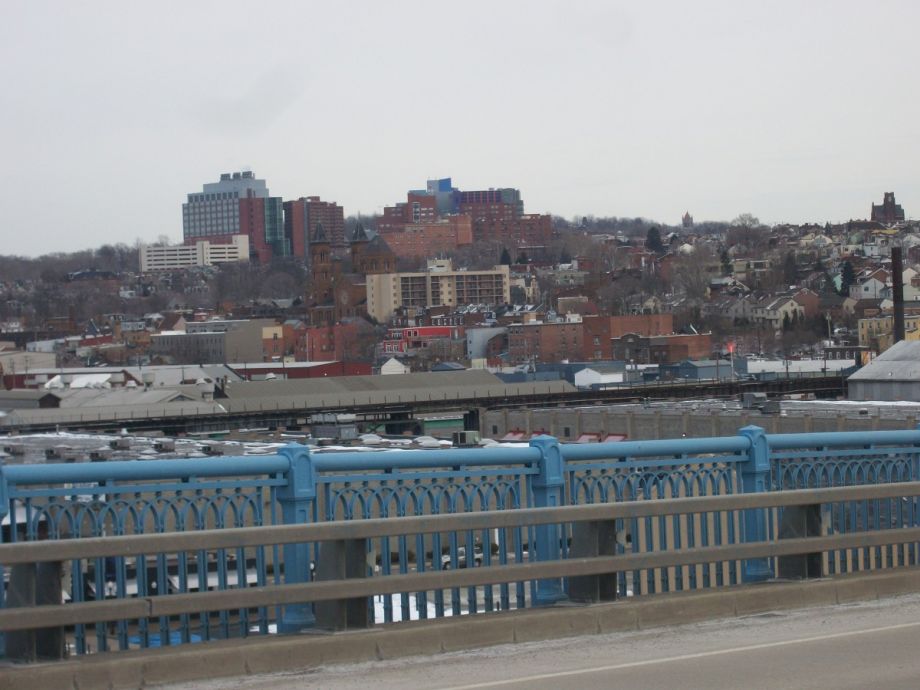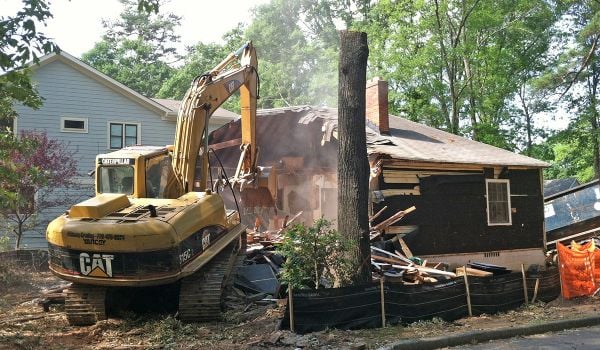It didn’t take long for Morgan’s Barbecue to become a culinary darling of Brooklyn. Three months after opening, it was named one of New York’s 20 Best New Restaurants of 2013 by Village Voice. Tom Colicchio, Ingrid Michaelson and droves of New Yorkers followed, flocking to Prospect Heights for a taste of the Texas-style turkey tails and brisket on the menu. When it came time for Morgan’s to expand to a second location, the owners looked far beyond the five boroughs, settling on a used-car dealership some 400 miles to the west, in Pittsburgh’s Lawrenceville. In September, at a community meeting about the second location, owner Joel Bolden said of the neighborhood: “It reminds us of Brooklyn 10 years ago.”
Lawrenceville didn’t need further proof of its rapid gentrification. It’d already been named a world-class “hipster neighborhood” in 2014, and home prices have tripled there over the past 15 years. After decades of moribund stasis, Pittsburgh’s real estate market has roared back. Lawrenceville and East Liberty are just two neighborhoods where you’ll find dozens of townhomes and Victorian-era houses converted into apartments — a recent flood of new inventory that’s led to record home sales in 2015.
The swift turnaround has given way to a deluge of affordable housing needs: A city task force estimated that Pittsburgh lacks more than 17,000 rental units for families earning half the median income for the area, or, $35,600 a year. There’s ample political will to create a housing trust fund (though uncertainty over how to fund it has delayed the project), and advocates have pushed for inclusionary zoning. None of this urgency could have been predicted even a decade ago.
“We’ve been a shrinking city for the last half-century and for a lot of years, Pittsburgh was just worried about creating market growth,” says Ed Nusser, real estate and planning manager of Lawrenceville Corporation, a community development corporation. “This wide-scale communal consciousness about affordable housing never existed until there was rapid market growth.”
For the past 30 years, Lawrenceville Corporation has been focused on attracting investment to Pittsburgh. Now that Google, Uber and Apple have all moved into the city — just one sign of Steel City’s renewed prosperity — Nusser’s CDC is participating in a major effort to improve affordable housing: the Greater Pittsburgh Community Land Trust (GPCLT). “How do we accommodate this growth and still allow room for everyone?” asks Nusser.
Across the country, community land trusts (CLTs) have been gaining attention in affordable housing circles as a permanent tool to curb gentrification-driven displacement. Essentially, CLTs are community-controlled nonprofits that acquire parcels of land — either through municipal land banks or other inexpensive means — and maintain them at an affordable price for people in the neighborhood, such as families looking to rent or buy homes at below-market-rate prices, in perpetuity. More than 250 communities nationwide have a CLT, but the GPCLT — which is a working name; they haven’t gotten 501c(3) approval — will be Pittsburgh’s first. And that’s not the only reason why it’s a notable affordable housing development.
The GPCLT is the centerpiece of an innovative model that Nusser calls a “hub-and-spoke” network of CLTs. Rather than stand alone, it will serve as the centralized office (the hub) for a group of neighborhood-level CLTs (the spokes) throughout Pittsburgh. The first of those spokes, headed up by Nusser’s CDC, will be grounded in Lawrenceville come 2017, where seven homes will become available for families earning between 70 and 80 percent of the median income. Over time, the hub will grow its network, while assisting each spoke in a supervisory capacity. For example, the hub might offer legal expertise (on deeds and land use), fundraising prowess and accounting services. Such support would free up the people in one of Pittsburgh’s 90 neighborhoods to focus on the real on-the-ground work of CLTs.
“The hub should provide capacity in neighborhoods that lack it. If there are neighborhoods who explore land trusting or who want to throw six or eight homes owned by neighborhood-focused individuals into a land trust, but they don’t have the staff capacity at the neighborhood level, the hub can serve as that role,” says Nusser. “It’s one way to look at economies of scale.”
Pittsburgh isn’t the first city to form a CLT network or even the first with a design that resembles Nusser’s hub-and-spoke. Most CLT networks are informal coalitions through which best practices are shared. (Earlier this year, 10 nonprofits across Pennsylvania formed a statewide CLT coalition.) But there have also been a few examples of models like what’s underway in Pittsburgh. Atlanta, New Orleans and South Florida have all created networks involving a centralized office and satellite CLTs.
“There has been a huge increase in the interest in CLTs, but the essential question now is how do we scale them up and what does that model look like?” asks Melora Hiller, CEO of Grounded Solutions Network, a national inclusive housing advocacy organization. “It’s very hard to support a lot of individual community land trusts. In fact, we don’t want to encourage a proliferation of new CLTs,” she says, noting how they often compete for the same grant funding. Instead, Hiller hopes that in cities like Pittsburgh there can be more efforts for CLTs to join forces, such as sharing back-end resources like with GPCLT.
Some of the other hub-and-spoke-type models have struggled to secure enough funding to sustain themselves over time. But Nusser is optimistic that the GPCLT can prosper, through a combination of foundation money and shared interest among local stakeholders who comprise the board. Over the next three years, Lawrenceville Corporation is on track to open 25 to 30 units of affordable housing in Pittsburgh. And Nusser hopes that’s just the start. “CLTs are always expanding. We’re like the universe — we always keep growing,” he says.

Malcolm was a Next City 2015 equitable cities fellow, and is a contributing writer for the Fuller Project for International Reporting, a nonprofit journalism outlet that reports on issues affecting women. He’s also a contributing writer to POLITICO magazine, Philadelphia magazine, WHYY and other publications. He reports primarily on criminal injustice, urban solution and politics from his home city of Philadelphia.
















